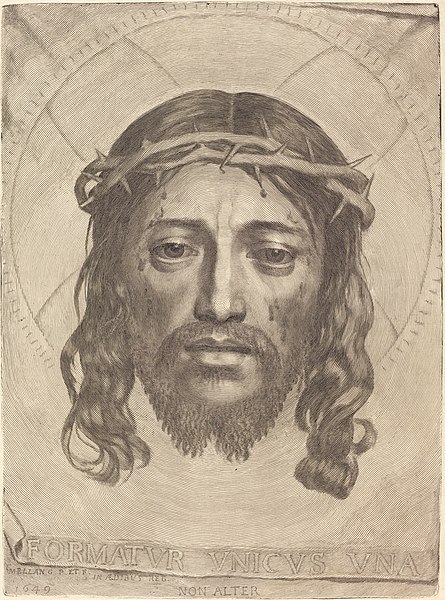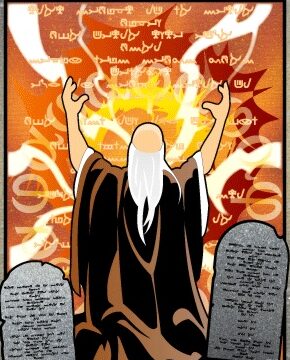Co-missioners,
Today Paul Jaster walks us through a critical section of the Apology of the Augsburg Confession, Article IV. Here Philip Melanchthon discusses the relationship between faith and works, between trusting the Gospel and keeping the Law. This matter is as much in contention among Christians in 2023 as it was in 1530. That’s all the reason for giving Melanchthon’s argument a close and careful reading.
To aid that reading we suggest that you look again at the end of Paul’s first installment, where he explored Melanchthon’s use of the word debet, often translated with a simple and misleading “ought to.” The issues raised there are of the essence in today’s discussion.
Peace and Joy,
The Crossings Community
__________________________________________________________________
A Crosser’s Guide to the Apology of the Augsburg Confession, Article Four: Justification by Faith Alone
by Paul Jaster
(Fourth of Six Installments, continuing from September 7)
Love and the Fulfilling of the Law
Since the Confessors’ opponents maintained that “doing what is in you” merits God’s infusion of grace and since “doing what is in you” involved the keeping of the commandments and acts of love towards God and neighbor, Melanchthon chose at this point to add a section to his argument that sets forth what the Confessors believe about love and the fulfilling of the law before addressing their opponents’ biblical objections [122]. By “commandments” the Confessors do not mean ceremonial laws, but rather “that law which deals with the impulses of the heart,” the Decalogue (Ten Commandments) [124].
In taking up this topic, Melanchthon is expanding on what was declared in Article Six of the Augsburg Confession concerning the New Obedience: “Our churches also teach that this faith is bound (debeat) to bring forth good fruits and that it is necessary (oporteat) to do the good works commanded by God. We must do so because it is God’s will and not because we rely on such works to merit justification before God…” [BOC, 1957, Ap VI, Theodore Tappert’s translation].
The Confessors’ position on this topic is as follows: “Because faith truly brings the Holy Spirit and produces a new life in our hearts, it must (necesse est) also produce spiritual impulses in our hearts. The prophet shows what those impulses are when he says [Jer. 31:33], ‘I will put my law within them, and I will write it on their hearts.’ Therefore, after we have been justified and reformed by faith, we begin (1) to fear and love God, (2) to pray for and expect help from him, (3) to thank and praise him, (4) to obey him in our afflictions,…and (5) to love our neighbor because our hearts have spiritual and holy impulses” [125]. Later Melanchthon will say, “The renewal and the incipient keeping of the law ought to exist in us” as is stated in Jeremiah 31:33, “I will put my law within them” [219].
“These things cannot happen until after we have by faith been justified, reborn and received the Holy Spirit. This is because, first, it is impossible to keep the law without Christ, and, second, it is impossible to keep the law without the Holy Spirit. But the Holy Spirit is received by faith according to the passage in Paul, Galatians 3:14: ‘So that we might receive the promise of the Spirit through faith.’ Again, how can the human heart love God as long as it believes that he is terribly angry and that he is oppressing us with temporal and eternal calamities? However, the law always accuses us (lex semper accusat); it always shows that God is angry. Therefore, God is not loved until after we grasp his mercy by faith. Not until then does he become someone who can be loved.” [126-129].
The Confessors grant that civil works (external public behavior that is in keeping with the second table of the Ten Commandments, commandments 4-10) can be carried out to some extent without Christ and without the Holy Spirit. But those things which go to the heart of the divine law (the first table of the Ten Commandments, commandments 1-3) cannot be rendered without the Holy Spirit. The “eternal law” articulated in the first table is summarized in the command, “You shall love the Lord your God with all your heart” (Deuteronomy 6:5) [130-31].
Christ was given for this very purpose. Faith in the promised forgiveness of sins offered through Christ gives us the Holy Spirit, which in turn, produces in us a new and eternal life that relates to God the right way: with God as the gift-giver who in Christ and the Holy Spirit gives us faith, love, prayer, thanksgiving, chaste sexual behavior, endurance (the very things commanded in the Ten Commandments). “Therefore, we cannot truly keep the law until we have received the Holy Spirit through faith.” “Thus, the law is established, not abolished through faith…” [131].
Exodus 34 tells us the story of “The Shining Face of Moses.” When Moses came down from Mount Sinai with the Ten Commandments, his face shined radiantly because he had been talking with God. This shining face terrified the Israelites. So, Moses put a veil on his face in order not to scare them. In 2 Corinthians 3, St. Paul refers to this story but with an ironic twist to address the inadequate biblical interpretation of his Judaizing opponents (that is, Jewish Christians who were insisting that, in addition to faith in Christ, a right relationship with God also required the continued observance of the commands of the old covenant, such as circumcision, Sabbath, festivals, and eating kosher). Paul’s “put down” is that Moses actually put on the veil to hide the old covenant’s “fading glory.” In contrast, the confidence that we have through Christ toward God through the ministry of the new covenant gives us a far greater glory than the one given to Moses, “for the letter kills, but the Spirit gives life.”
Melanchthon builds on Paul by accusing his opponents of putting a “veil” over the full power of the law when they suppose that external and civil works satisfy the law of God and when they assert that religious rituals justify before God by the mere performance of those rites (ex opere operato). It is not only that the opponents’ “gospel” is too small but that their use of the “law” is too small as well.
But this “veil” over the full power of the law is removed from us when God shows us our impure hearts and the magnitude of our sin. For then we see! “We see for the first time that we are far from fulfilling the law. Then we learn how our smug and indifferent flesh does not fear God and does not truly believe that God looks out for us. Then we experience how we fail to believe that God pardons us and hears us.” “But when we are consoled by faith through hearing the gospel and the forgiveness of sin, we received the Holy Spirit, so that we are now able to think rightly about God, to fear God, and to believe him, etc.” [135].
The Confessors openly confess that the keeping of the law must necessarily (necesse sit) begin in us and then increase more and more. This means both inner spiritual impulses and the outward good works. “Therefore the opponents’ claims are false when they charge that our people do not teach about good works, since our people not only require them but also show how they can be done” [136]. Human nature is far too weak to resist the devil and keep the law by its own strength, so the power of Christ is needed [139]. Not only do the confessors teach “how the law can be kept, but also in what way it pleases God when we keep any of it…because we are in Christ.” Faith comes first and love follows [140-41].
The Confessors’ opponents claimed that love fulfills the law when this glory properly belongs to Christ. “In this life we cannot live up to the law, because our sinful nature does not stop bringing forth evil desires, even though the Spirit in us resists them.” “Whoever doubts the forgiveness of sin [received by faith] insults Christ. “We do not receive the forgiveness of sins on account of [our] love for God, although it is necessary (necesse est) for love to follow faith” [145-151].
Seeking the forgiveness of sins is “the highest way to worship Christ” as is shown in Luke 7:36-50, where Jesus contrasts two forms of worship: the entire worship of the Pharisee who invited him to dinner with the entire worship of the poor woman who crashed the party and washed Jesus’ feet with her tears [154]. The contrast between these two different forms of worship is about: (A) the honor of Christ and (B) the source from which the faithful might seek a sure and certain consolation. The double dipstick test. If we place our confidence in “doing what is in us,” (A) Christ “will be robbed” of his honor as our mediator and the one sacrificing himself for us and (B) our consciences will plunge into despair [156-57]. Failure to meet the double dipstick test.
Five reasons why love does not justify:
1. The gospel teaches that we do not live up to the law.
2. Our fulfillment of the law, which follows renewal, is scanty and impure, for remnants of sin still cling to our or nature.
3. Only that which gives the conscience peace justifies; and according to Romans 5:1 only forgiveness through faith gives peace and not a forgiveness merited by love.
4. Christ does not stop being our mediator after we are reborn.
5. If we are acceptable to God on account of our keeping of the law, we will be driven to despair, for the law always accuses since we never satisfy the law as is shown in Romans 7:19, “For I do not do the good I want, but the evil I do not want is what I do.”
“For who loves and fears God enough? Who endures patiently enough the afflictions imposed by God? Who does not often doubt whether human affairs are ruled by the counsel of God? Who does not often doubt whether one is heard by God? Who is not often angry that the wicked enjoy a better lot than the pious and that the godly are oppressed by the wicked? Who is not often enraged by the judgment of God when he seems to abandon us? How many live up to their calling? How many love their neighbor as themselves? Who is not incited by concupiscence [strong sexual desire]?” [164a]
It’s all a matter of human flesh vs. the Holy Spirit: “The flesh distrusts God, trusts the things around it, seeks human help in calamities, and, contrary to the will of God, flees from afflictions that, according to God’s command, it ought to bear, and doubts the mercy of God. The Holy Spirit contends with such desires in our hearts in order to restrain and mortify them and in order to implant new spiritual impulses.” [164a]
Towards the end of his main exposition, Melanchthon vents his frustration by swearing and making a very emotional outburst: “Good God, how do those who deny that we receive the forgiveness of sins by faith alone on account of Christ dare to speak Christ’s name with their lips? How do they dare to look upon the books of the gospels with their eyes?!” [159b]
Just as he began in his introduction, Melanchthon concludes his main exposition of the Confessors’ position on faith alone with the double dipstick test: “It is nothing but a doctrine of despair to teach that we are accepted…on account of our own fulfillment of the law.” “The honor of Christ should not be transferred to the law” [172-182]. The double dipstick test “bookends” his entire argument.
Thursday Theology: that the benefits of Christ be put to use
A publication of the Crossings Community






You must be logged in to post a comment.